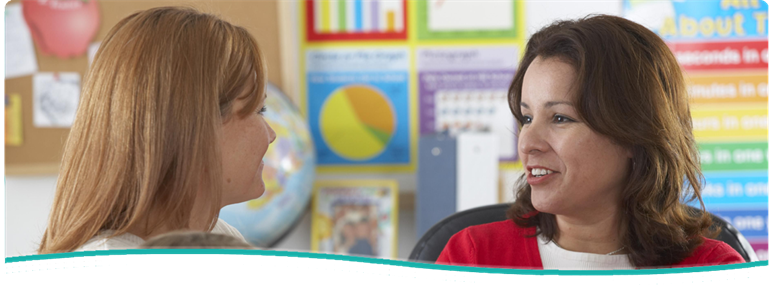

Free Counselling Training
For Educators
"Continually absorbing the trauma and emotional stresses of families often produces traumatic stress in early education staff"
Many clients share their celebrations, griefs and fears as if they were confiding in family members.
When people are experiencing emotional issues, financial problems or domestic abuse, they usually do not seek help until it becomes a crisis. They often turn to alcohol, drugs, excessive exercise or inappropriate relationships to dull the pain and avoid the issue.
Educators are usually the first to recognise these changes in mood and behaviour. They may become emotionally involved in the situation and feel responsible to help - but are unable. At the end of the day, they take home their client's emotional burdens and may have difficulty maintaining professional boundaries.
Emotionally stressed staff can be difficult to work with, have mood swings and are more likely to take time off.
Our Free 'Listening Skills' training teaches staff what to say and what to do when clients share their problems and how to refer them onto professional help
Staff can then act as early intervention 'Fire Spotters' to talk with and refer people to appropriate support services. Assisting clients in this way reduces the emotional cost to staff.
Community counselling is not therapy. It is intended to reach the people who would not seek professional help until the issue becomes a major mental health, domestic abuse or suicide situation.
This Free, 10 minute, Psychologist endorsed, training teaches the basic skills of a telephone counsellor.
Free Staff Training
How To Listen Like A Therapist - 4 Basic Skills
1. Rephrase to clarify what they said
2. Ask "What's that like for you?"
3. Validate "I can understand why you would feel like that"
4. Explore their mixed feelings
R.A.V.E
__________
Support Services
Carer Gateway Australia - For Anyone Who Is A Carer
Call - 1800 422 737
Lifeline Australia - Crisis Support
Call - 13 11 14

Annie & Trevor Boulton (Founders of The Brain Health Education Institute)
For 20 years, Annie owned and operated hair salons in city, suburban and regional areas, so is able to appreciate the value that salon staff provide to their communities and the personal costs involved.
Trevor and Annie produced the world acclaimed 'Toxic Thinking' Apps, mental health education programs, books and online training, they have combined the knowledge gained from their own lived experiences and years of research, to produce unique, Psychologist endorsed, non-clinical, no jargon, life-skills mental health conversation resources and training
The Brain Health Education Institute
397 The Esplanade
Hervey Bay, Queensland, 4655
Australia
0417 90 6000
boultons@gmail.com